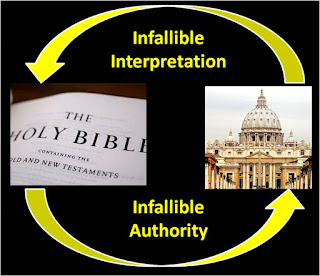R.S. Clark writes here:
Those predestinarians who deny the free offer usually do so because of some form of rationalism, i.e. they’ve set up things so that, unless they can provide a comprehensive explanation of how something works, it can’t be. Thus, because they can’t see how God can both predestine the elect and the reprobate and freely offer salvation to all, they conclude that it cannot be. They reject mystery. In contrast, the mainstream of orthodox Calvinism, including Calvin, has always embraced the mystery and paradox of the free offer. The Synod of Dort (whence the so-called “Five Points of Calvinism”) embraced this mystery:
Moreover, the promise of the gospel is that whosoever believes in Christ crucified shall not perish, but have eternal life. This promise, together with the command to repent and believe, ought to be declared and published to all nations, and to all persons promiscuously and without distinction, to whom God out of His good pleasure sends the gospel (Canons of Dort, 2.5).
I posted on Clark’s site but he elected not to publish my
post but rather email me. I wrote:
What does it mean when a Calvinist says that God desires the salvation of the non-elect? Are we to believe that God desires men to regenerate and unite themselves to Christ? That’s what Arminians believe – that regeneration follows self-willed saving faith. The Calvinist who wants to argue for the free-offer should do so not like the Arminian but rather by arguing that God desires that He Himself would sovereignly regenerate the “reprobate” unto union with Christ and salvation. The question for the Calvinist is not whether God desires the reprobate to turn and live (Arminianism) but whether God desires to turn the reprobate so that he can live. I think the error of the free-offer should become clearer to the Calvinist when cast in that light. Cast in the light of “salvation is of God” – is it reasonable to think that the Holy Spirit desires to turn the reprobate toward himself when the Father did not choose the reprobate in Christ? Moreover, Christ did not die for the reprobate, let alone does he pray that the efficacy of the cross would be applied to the reprobate. Consequently, it is not available for the Holy Spirit to unite the reprobate to the finished work of Christ, lest the Trinity works at cross purposes.
In a word, not only can God not save the reprobate - 2000 years ago He punctuated that inability. For God to desire the salvation of the reprobate is to say that God – today – desires that Jesus would have died for the reprobate 2000 years ago. What can God desire in this regard other than the past be different? Does God live with any sense of regret?
It’s not rationalistic (but it is rational) to abandon a theological viewpoint when it undermines cardinal tenets of one’s theology – as does the free-offer as it stands in relationship to the soteriology of Calvinism and the internal consistency and coherence of the Godhead. No amount of mystery can resolve a blatant contradiction.
In response, Clark informed me by email that Calvinists have
taught the free-offer. (He means well meant offer!) Correction, he informed me that Calvinists "HAVE" taught the free offer. He even
assured me this was true by asserting it was “a fact.” Maybe that sort of thing settles
matters in Dr. Clarks's classroom but bald, un-argued assertions don’t get far with me (even if they're shouted and proclaimed as "fact"). Let alone, in this case, Clark’s assertions did not address my post to him, which was
not aimed at disputing what I believe to be a dubious account of Reformed history on this matter
but rather the theological inconsistency between the free-offer and those tenets
of Reformed theology that Clark and all Calvinists do confess.
Clark then added to his rhetoric by talking down to me, which too might gain him an edge in his classroom but not here. He suggested that I might not understand what is meant by the free-offer of the gospel.
Clark then added to his rhetoric by talking down to me, which too might gain him an edge in his classroom but not here. He suggested that I might not understand what is meant by the free-offer of the gospel.
Moreoever, it's remarkable that a professor of theology thinks that
this doctrinal statement is not compatible with the denial of the well meant offer (and that it actually supports it): “Moreover,
the promise of the gospel is that whosoever believes in Christ crucified shall
not perish, but have eternal life. This promise, together with the command to
repent and believe, ought to be declared and published to all nations, and to
all persons promiscuously and without distinction, to whom God out of His good
pleasure sends the gospel (Canons of Dort, 2.5).”
What’s equally interesting is that Clark has recently
written this on his site:
Rather, when our theologians spoke of the “evangellium oblatum,” i.e., “gospel offered” in preaching, they believed that it entailed a well and sincerely meant revealed divine intention that whoever believes should be saved.
Seems to me that the target just moved, or else Clark doesn't understand what the well meant offer entails! Certainly no
Reformed person who denies the well meant offer would take issue with the sincerity
of “whoever believes should be saved.” The point of contention, which Clark the
historian has missed, is whether God desires salvation for those not elected
unto salvation (and not whether God sincerely desires salvation for all who believe).
As noted elsewhere on this site, my primary concern with WSC is not their error per se but their proud and erroneous insistence that their view is the Reformed one.
Hit Counters









